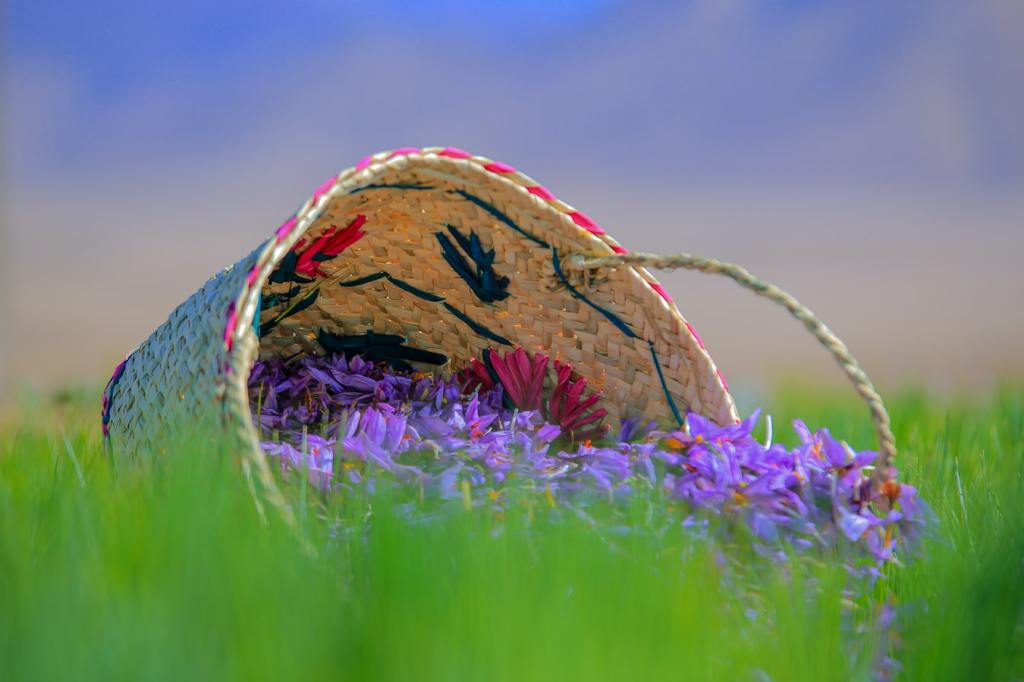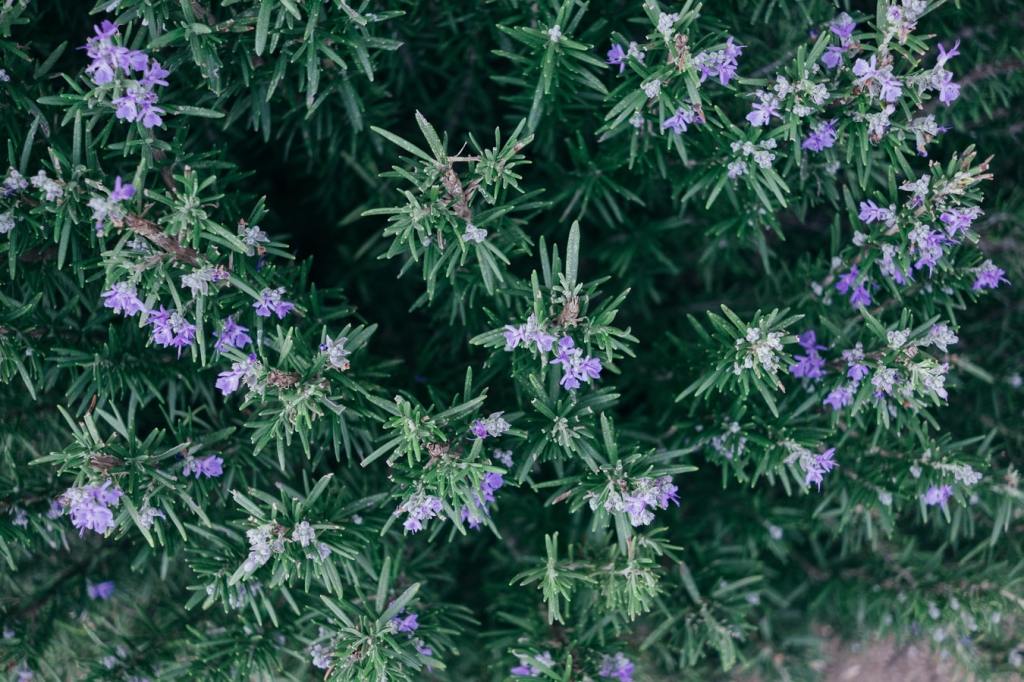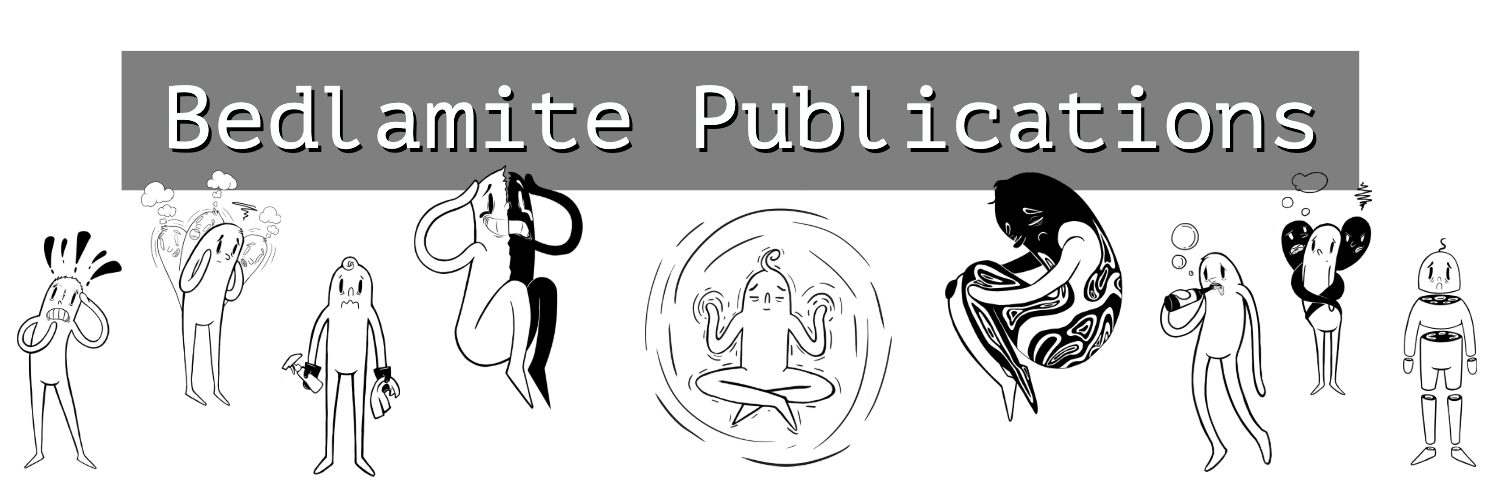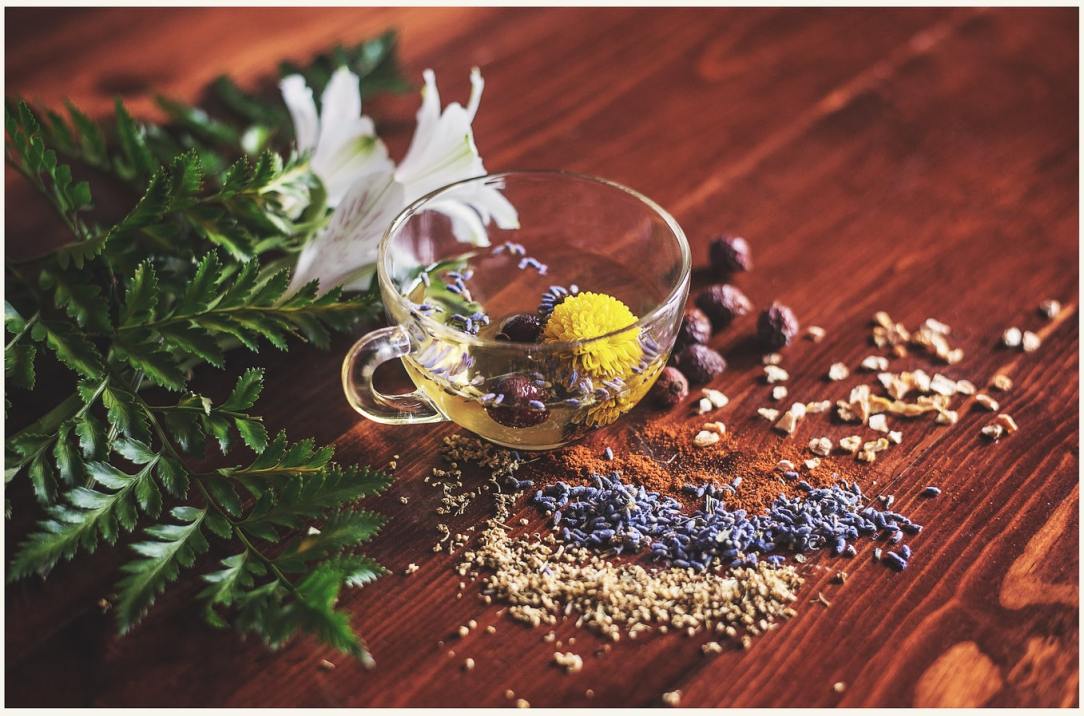People struggling with depression have cited concerns traditional treatment through prescription medication, such as antidepressants. There are many that feel a natural route is a safer alternative that comes with far less side effects. Natural treatments and remedies for various mental health disorders have become popular and, when it comes to depression, the rhodiola plant has garnered a lot of attention.
Though the question remains, is rhodiola a good alternative treatment for depression? We’re going to explore that, dosing recommendations, and some of the benefits/consequences from taking rhodiola for depression. Towards the end of the article, we will also explore some other herbal and natural alternatives for you to consider.
What is Rhodiola?
Rhodiola is a naturally occurring plant usually found in cold climates at high altitudes in Europe and Asia. The rhodiola plant has been utilized for medicinal uses in Russia, Scandinavia, and throughout Eastern Europe. In the last few decades, its use has increased throughout the world including in the United States. ¹
Rhodiola has been used to treat ailments that can be physical and mental in nature, including: ²
- Alleviating stress
- Enhancing athletic performance
- Fighting fatigue and weakness
- Relieving symptoms of depression and anxiety
Rhodiola can be commonly found in marketplaces in various different forms. The most common is in capsule, grounded up powders, and teas. However, with its growing popularity, rhodiola can also be found in more unique forms, such as chewable gummies.
Can Rhodiola Help with Depression
Those that have used rhodiola have touted the natural remedy for energy, sleep difficulties, and mental health issues, such anxiety and depression. Many claim that it helps uplift them from the burden of their depression – easing the difficulties that can arise from depression symptoms. However ,the real results of rhodiola and its impact on those struggling with depression are better discussed by researchers and medical professionals.
What Does the Research Say?
Although there haven’t been many studies done on rhodiola and its impact for depression, the few out there give insight into how this natural remedy works with the brain. Furthermore, how it’s exhibited in behaviors and actions of those that are diagnosed with depression and utilized as a treatment method.
These few studies have given us a better understanding of how rhodiola can be utilized either by itself or in conjunction with other antidepressants to yield a positive result:
- The most comprehensive study done on depression and rhodiola has shown that it has the ability to alter the blood-brain barrier, allowing for a permeability to the usually restrictive border of the brain. This permeability allows the introduction of certain endorphins to be easily absorbed by the brain and thus alters the way in which the brain reacts to stress. ³
- Another study was executed to show the effects of two different natural remedies, the aforementioned rhodiola and sertraline, and their individual impact on the brain relating to stress, depression, and anxiety. The study came to the conclusion that both were helpful in aiding those afflicted with these mental health conditions, but that rhodiola was a safer alternative than sertraline. ⁴

Rhodiola Pros:
- Rhodiola has shown to aid in diabetes treatment in studies involving diabetic lab rodents, including mice and rats. ⁵
- The natural remedy has been known to reduce stress by increasing the permeability of the blood brain barrier thus allowing the facilitation of endorphins like serotonin.⁶
- Rhodiola has shown to be helpful in aiding in energy, with the effects mirroring that of caffeine but at a lower rate and with less consequences that caffeine usually causes (i.e. jitteriness). ⁷
- There have been studies that have shown a naturally occurring ingredient in the rhodiola plant has anti-cancer properties but it’s impact on humans have yet to be fully investigated. Still, the potential is there that rhodiola might be a key to fighting cancers. ⁸
Rhodiola Cons:
- Drug interaction complications including those medications dealing with diabetes, birth control, and thyroid medications have been known. ⁹
- Rhodiola can increase effects of insomnia or increase fatigue in those that already have issues with energy.
- Rhodiola has been known to cause complications with mood stability, causing increased irritability and can increase disturbances in focus and attention.
- Can increase anxiety and paranoia for those that have history with such situations.

Rhodiola for Depression Dosage Recommendation
Dosing for rhodiola is different for everyone and varies for what you want the natural supplement to target. The recommended dosing of rhodiola for depression is cited differently by various outlets, but based on studies done to show the effects of rhodiola for depression and anxiety, the common dosing is between 250mg to 350mg. ¹⁰
However, the reference website, Drugs.com (which lists proper and recommended dosing for both natural supplements and pharmaceutical medications), have listed the Rhodiola dosage for depression at a range starting at 340mg and ending at 680mg. This range is based off of the clinical trials done for rhodiola and depression.¹¹
What are the Risks with Rhodiola?
With every medication and supplement comes with it it’s own set of risks and side effects. The risks as it comes to taking supplements is that they are not tested and approved by the Food and Drug Administration (FDA). Therefore, we truly don’t know all the potential risks a substance like rhodiola poses.
Rhodiola Side Effects
There hasn’t been enough studies or research into long term use of rhodiola and its effect on the user. However, those that have taken it for a short-term period of time (between 6 – 12 weeks) have reported: ¹²
- Dry mouth
- Dizziness
- Increased saliva production
- Sleep difficulties
Rhodiola for Depression Reviews
When it comes to finding the best rhodiola, it’s important to understand that a number of irrefutable sellers have appeared online over the last decade or so. Since the industry is unregulated, many can sell low-quality rhodiola that might even be mixed with other substances. For this reason, we devised a list of the 5 best online retailers to purchase from so you can get the highest-quality rhodiola supplement possible.
aSquared Nutrition
aSquared Nutrition is a supplement manufacturer that produces capsules made up of their natural ingredients. Made in US-based facilities, the company is proud to be a prominent seller of FDA-registered and GMP-compliant products.
Their rhodiola options are three 500mg capsules containing naturally-sourced rhodiola root alongside varying beneficial ingredients:
- 500 mg Rhodiola capsules, containing the organic and naturally sourced rhodiola root ground up into pill form.
- Rhodiola capsules with BioPerine, which is a compound mixture allowing for easy absorption of natural ingredients.
- An Adrenal Support blend of thirteen natural ingredients, including rhodiola.
HerbPharm
HerbPharm is a trusted supplier of natural supplements through liquid forms including tinctures and sprays. HerbPharm has been in business since 1979, creating products through sustainable farming practices and manufacturing their supplements through their own unique extraction methods. HerbPharm assures that their ingredients are of the highest quality. Certain products certify that they’re GMO-free, gluten-free, and vegan-friendly.
HerbPharm’s rhodiola tincture comes in two different sizes (1oz and 4oz) and in two forms (one with cane alcohol as an ingredient and one that is alcohol free). With the understanding that HerbPharm only provides liquid forms of their supplements, the preciseness on the dosing isn’t always exact as droppers are known for having imprecise dosing. However, this is a great option for those who have difficulty swallowing pills.
MicroIngredients
MicroIngredients is a supplement company based out of Montclair, California. They create and distribute powdered forms of natural ingredients to be taken orally or mixed into drinks and foods. They make sure that their ingredients as well as their packages are GMO-free, organic, and with no added or artificial flavoring.
For rhodiola, they provide a pouch of ground rhodiola flower, containing 3% Rosavin flower root. The dosing recommendation is 400 mg of the ground powder that is to be taken daily and mixed into smoothies, shakes, or teas.
NOW Supplements
NOW Supplements is one of the largest and most recognized supplement manufacturer and distributor. They create supplements containing all-natural and sustainably sourced ingredients. They’re a family-owned company that creates affordably priced products for everyone can take.
For rhodiola, NOW offers different options that take capsule, powder, and ointment forms:
- 500 mg Rhodiola capsules, containing 3% Rosvin flower in vegetable capsules which are to be taken once daily.
- NOW Energy, is a multivitamin taken to maximize energy from natural ingredients including green tea, panax ginseng, and rhodiola. It contains 100mg of rhodiola root extract and it’s to be taken twice daily.
- NOW Arginine Stack which is a powder-based supplements for athletic performance, focusing on energy enhancing formula which includes yerba maté, guaraná, and 25mg of rhodiola root extract. It’s suggested to only take 1 scoop (or 20 grams) of the powder and mix it into sport drinks or water.
- Cocoa butter lotion, which contains rhodiola, is to be taken topically and applied to the skin as necessary.
NutraChamps
NurtaChamps is a supplement company that creates supplements that take the forms of powders, capsules, gummy chewables, and tinctures. NutraChamps offers one form of rhodiola product which takes the form of veggie capsules.
NutraChamps Rhodiola capsules contains 600mg Rhodiola Rosea Root Extract, to be taken once or twice daily, upon the instruction of a healthcare professional.

Other Natural Alternatives for Depression
If you are looking for other alternatives to rhodiola to treat depression that are also from natural ingredients, there are options. Of the natural ingredients available for depression, the ones that have been widely used and touted for its treatment are as follows:
Ashwagandha
Originally found in India nearly 6,000 years ago, ashwagandha is a naturally occurring herb that was used in ancient herbal medicine in India. However, in modern Western medicine, it has been shown to have positive effects on mood. This potent effect on mood-shifting and stabilization has been a great benefit in trying to aid the treatment of those afflicted with depression.¹³
It’s recommended that those seeking to use ashwagandha for depression try and purchase full-spectrum ashwagandha extract for daily use. The dosage recommendation no more than 300 mg of the herb in capsule form, twice daily. Those that have used ashwagandha have little to no side effects if taking the recommended dosage at the suggested times daily. ¹⁴
Maca Root
Maca root is a naturally occurring plant, usually found in South America, typically in the High Andes mountain region in Peru. Maca is from the same family of plants that mustard is from and usually resembles a small potato or radish. The root of the maca plant has been used by Southern American tribes as an aid for various ailments, such as fertility complications, fragile bones, and even memory issues. Nowadays, the maca root is harvested and distributed as a herbal supplement and can be found in natural food and supplement stores. ¹⁵
Maca is available commercially in several dosage forms including powder, liquid, tablets, and capsules. Maca root is typically used for energy and to fight fatigue, but there are some that use it to enhance mood and provide relief from mental health issues. While there isn’t an agreed upon common dosing for maca, it is advised to take maca root in the following ways: ¹⁶
- A recommended daily dose of dried maca extract is to take a 450 mg capsule 3 times daily with food.
- For SSRI related sexual dysfunction, 3,000 mg maca daily is recommended.
- For grounded down maca root, it is strongly suggested that one does not to go over 3 grams or a teaspoon a day.
Rosemary
Rosemary is an edible herb found mostly in the Mediterranean, belonging to the same herbal family of mint, along with lavender, thyme, oregano, and basil. It’s most notably known as a spice used in culinary dishes, but its therapeutic properties have also become known in recent years. ¹⁷
Rosemary as a natural supplement may be able to enhance memory within the brain, provide neurological protection, act as an anti-inflammatory, and improve digestion. As for how it aids in the treatment of depression, it has been found that the rosemary plant and its essential oil derived from the plant can lower levels of the stress hormone cortisol in your blood. ¹⁸
As for the dosage, RxList recommends specific dosages for the various forms that rosemary takes and is available on the market. As for the forms that rosemary takes there is ground rosemary, a topical form that utilizes the rosemary as an essential oil and a liquid extract tincture.
- For the grounded down form of rosemary, it is recommended to take 1-2 grams per day.
- For the essential oil topical form, it is recommended to use doses up to 0.1-1 ml of a 6-10% balanced mixture of essential oil, rubbed through the scalp of the user.
- And finally for the extract used as a liquid tincture, it is recommended to take 2-4 ml orally three times daily, with a mixture that is 45% alcohol and a 1:1 blend of the organic rosemary extract and the alcohol base.
Saffron
Saffron is a spice derived from the Crocus sativus flower and is regarded as one of the most expensive spices in the world. Saffron has been used in herbal and traditional medicine for thousands of years and has become popular for its effects on overall health. ¹⁹
Saffron’s ability to balance and uplift moods has made it an alternative treatment for depression. There have been studies done in how saffron can be used as a natural alternative to antidepressants and their findings have shown saffron to be a useful and safe treatment option. ²⁰ ²¹
In order to get the correct dosing for saffron for depression, it is advised by RxList that you take 30 mg of a specific saffron extract from the Novin Zaferan Company, which is from Iran and to take that dose once a day. If 30 mg is not an option, you can spilt the dose into two 15 mg doses taken twice daily, once in the morning and once in the evenings.
St. Johns Wort
St. Johns Wort is a flower of the family of Hypericaceae plants and has a history of being a part of ancient traditional European medicine, its use dating back to the ancient Greeks. Its name is inspired by the notable Christian saint of St. John the Baptist as the flower’s blossoming occurs typically around the time of the great feast of St. John the Baptist in late June. St. Johns Wort has become a notable natural remedy for mental health issues like ADHD, depression, and has even been used in cases of somatic disorder. ²²
The effectivity of St. Johns Wort on depression is mixed, with some studies showing that it has no real impact or little impact when compared to pharmaceutical SSRIs. Whereas, other studies claim that it’s safer for long-term use than SSRIs with fewer side effects. However, it’s also important to note that St. Johns Wort has many risk factors for those currently on SSRIs or that have taken medications for other disorders and diseases, such as weakening the the pharmaceuticals. Those disorders and medicines that St Johns Wort affects and interacts with are: ²³
- Antidepressants
- Birth control pills
- Cyclosporine, used to prevent the body from rejecting transplanted organs
- Digoxin, a heart medication
- Oxycodone, a pain medicine
- Some HIV drugs, including indinavir
- Some cancer medications, including irinotecan
- Warfarin, an anticoagulant (blood thinner).
However, if one is interested in giving St. Johns Wort a try for their depression or ADHD symptoms to see if it can relieve them, there are specific dosing recommendations from RXList:
- The standardized St. John’s wort extract option for mild to moderate depression is 0.3% hypericin content, used at doses of 300 mg taken three times daily.
- Some studies have used St. John’s wort extract standardized to 0.2% hypericin at doses of 250 mg twice daily.
- Another option is to take a St. John’s wort extract at 5% hyperforin in doses of 300 mg taken three times daily.
- Depressive patients experiencing bodily symptoms of the disorder it is suggested that three doses of 300mg of St Johns Wort at the standardized extract amount of 0.3% daily can be helpful.

Final Word
Using rhodiola for depression seems to be a relatively safe and affordable option. However, it’s effectiveness for treating depression in comparison to traditional medication is still not certain. With that said, some may find rhodiola to be beneficial alongside other natural practices, such as meditation and exercise.
Your Questions
Still have questions about rhodiola for depression?
We invite you to ask them in the comment’s section below. If you have any further knowledge on this topic – whether personal or professional – we’d also love to hear from you.
Reference Sources
¹ National Center for Complementary and Integrative Health: Rhodiola Health Information
² Kaiser Permanente: Rhodiola Uses
³ US National Library of Medicines via National Institutes of Health: Rhodiola rosea therapy for major depressive disorder: a study
⁴ US National Library of Medicines via National Institutes of Health: Rhodiola rosea versus sertraline for major depressive disorder: a study
⁵ US National Library of Medicines via National Institutes of Health: Treatment with Rhodiola crenulata root extract ameliorates insulin resistance in fructose-fed rats
⁶ ResearchGate: The effects of Rhodiola rosea extract on 5-HT level
⁷ ResearchGate: The Effect of Caffeine and Rhodiola Rosea
⁸ US National Library of Medicines via National Institutes of Health: Rhodiola rosea L.: an herb with anti-stress, anti-aging, and immunostimulating properties for cancer chemoprevention
⁹ Mental Health America: Rhodiola Side Effects & Drug Interactions
¹⁰ US National Library of Medicines via National Institutes of Health: Rhodiola rosea for physical and mental fatigue: a systematic review
¹¹ Drugs.Com: Rhodiola Rosea Dosing Information
¹² Memorial Sloan Kettering Cancer Center: Rhodiola Information for Patients & Caregivers – Side Effects & Risks
¹³ Medicine Monthly via Wolters Kluwer: An investigation into the stress-relieving and pharmacological actions of an ashwagandha extract
¹⁴ National Library of Medicine: A study of ashwagandha root extract in reducing stress and anxiety in adults
¹⁵ US National Library of Medicines via National Institutes of Health: Ethnobiology and Ethnopharmacology of Maca, a plant from the Peruvian Highlands
¹⁶ Drugs.Com: Maca Root Dosing Information
¹⁷ PlantMedicines: Rosemary Herb Reduces Anxiety, Depression and Insomnia
¹⁸ US National Library of Medicines via National Institutes of Health: Smelling lavender and rosemary increases free radical scavenging activity and decreases cortisol level in saliva
¹⁹ US National Library of Medicines via National Institutes of Health: Saffron – An Old Medicinal Plant and a Potential Novel Functional Food
²⁰ ScienceDirect via Elsevier: Saffron in the treatment of depression, anxiety and other mental disorders: Current evidence and potential mechanisms of action
²¹ US National Library of Medicines via National Institutes of Health: Saffron and major depressive disorder: a meta-analysis
²² National Center for Complementary and Integrative Health: St. John’s Wort Health Information
²³ National Center for Complementary and Integrative Health: St. John’s Wort and Depression – An In Depth Review

